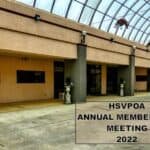By Teri Jackson, November 12, 2019
Incorporation Does Not Mean Corporation
It is not the intent of this article to impugn anyone’s character or make claims of illegal actions. It is an attempt to establish where we are as a community, how we got there, and an acceptable path going forward.
HSV is an incorporated nonprofit, made so when John Cooper filed the necessary paperwork with the state pursuant to the provisions of the Arkansas Nonprofit Act of 1963 in 1970. And while we are incorporated (as most municipalities in states are), we are not a corporation and our governing structure should not resemble one.
Since 1963, the Arkansas legislature has passed a new nonprofit act, the Arkansas Nonprofit Corporation Act of 1993. As part of the Declaration vote in 2018, the last item on the ballot was to change the act under which the HSVPOA operates from the 1963 Act to the 1993 Act. That ballot initiative was resoundingly defeated by the property owners. Despite that defeat, the last two POA Board of Directors have changed Bylaws and implemented policies that are based on and reflective of the 1993 Act, resulting in the POA governing structure being set up as a corporation. I contend this is without legal standing and is flat out wrong.
For 45 years, the HSVPOA has not needed a Governance Committee to dictate how a Board member should conduct themselves. And even if we thought we needed one, in what universe would the person responsible, i.e. the POA CEO, for executing policies set by the governing body, i.e. the POA Board of Directors, be allowed to be a voting member of a committee on governance, which is defined in Webster’s Dictionary as “the political function of policy making as distinguished from the administration of policy decisions”?
There was not a need for an entire section in the Bylaws on Board accountability because Board members were elected by the property owners (as they continue to be today) and they knew they were accountable to them for their actions. There was no need for Duty of Obedience which includes “supporting, and not opposing directly or indirectly or taking any other stance against the policies and positions duly adopted by HSVPOA’s Board of Directors. Board members are allowed to communicate their views while still upholding their adopted policies. As representatives of HSVPOA, officers and directors are obligated to maintain this Duty of Obedience in all manner of activities during their terms of office.”
The Bylaws go on to state this is not intended to stifle or discourage debate: “informed debate is encouraged and is part of the individual’s responsibility in the deliberation process”, thus limiting a Board member’s right to step back after a vote is taken (whether on the prevailing side or not) and say, “I think we made a mistake and maybe this needs to be revisited and possibly even be brought back for another vote”. Roberts Rules of Order definitely allows this as long as the motion comes from someone on the prevailing side. But under the Duty of Obedience, that type of request/action can be construed as a violation of that section of the Bylaws. This is not good government – no governing body has ever gotten everything right the first time. There is a reason for an avenue to right wrongs.
Transparency and Openness Non-Existent
Also for 45 years, the HSVPOA Board has adhered to principles of the aforementioned Roberts Rules of Order. While the POA Board and staff claim to continue that practice, they have added Chapter 8, Article 3, C, (1), viii to the Board of Directors Policies as to what can be discussed privately. The first seven allowable topics are standard, straight out of Roberts Rules. But the eighth one, “Discussions of other confidential matters as reasonably expected to protect the organization and its interests” is so vague, the issues that could fall into that category are extremely subjective and certainly vast in nature. It pretty much opens the door to discussing anything they wish behind closed doors under the guise of how they ‘perceive’ the topic to be discussed.
Roberts Rules of Order also states that items scheduled to appear on a future agenda for action by the Board (excluding items that fall in categories one through seven) should not be discussed behind closed doors where a quorum of the Board is in attendance. Categorizing these sessions that the Board and staff readily agree happen on a regular basis as ‘briefings’ is in conflict with Roberts Rules; because there does not appear to be any debate in the formal meetings, one can only surmise that debate has taken place during these ‘briefings’, possibly resulting in how the vote will go down in the formal meeting. This is doubly troubling because the agenda does not allow input from the audience at the meeting prior to a vote. The only public input has to occur in three-minute intervals at the end of a meeting at least one month prior to it becoming an action item. One can only imagine what transpires behind the scenes in a full month between Board meetings; and by then, it’s too late to affect the outcome.
It is not enough for a Board member to take the microphone and state their support or non- support for an issue. Villagers want to know why they feel the way they do and what led them to that position – that’s how representative government is supposed to work. And while villagers in attendance at a Board meeting may or may not be allowed to speak (evidently for a variety of reasons), there is no response given to the questions they have. The vote has already been taken, the decision has already been made, it’s a done deal. And villagers are again left in the dark and frustration grows. Past Boards have allowed comments prior to the Action Agenda and then later at the end of the meeting. Why can’t that practice be reinstated? Why can’t or won’t the Board recognize this fundamental communication and transparency problem?
From my experience, I recognize occasionally there are issues in a preliminary stage that are best “explored” out of the public eye, so in keeping with Roberts Rules, the process can be circumvented by briefing Board members in groups of two or three. Those sessions amount to a pure briefing by staff with the opportunity for Board members to ask questions – no deliberations take place, no debate takes place, and no decisions are made. And those types of issues may or may not ever make it to the agenda as either New Business and/or Action Items so exploration in private can often prevent controversy from ever happening. And that’s good government too.
Whoever advised the POA the current practice of allowing a quorum to meet for briefings in private is either ignorant of Roberts Rules of Order or has purposely turned a blind eye to these activities. It’s just not right and despite numerous pleas from property owners to discontinue this practice and allow these briefings to occur in a public meeting, those pleas have fallen on deaf ears. As a result, the lack of transparency continues to be a major issue with villagers.
POA Boardmembers Hamstrung By Their Own Policies?
There are currently-seated Board members that shared many of the same views as stated above when they were campaigning to be a Board member. When questioned “what went wrong with your views pre- and post-election”, the response is something along the lines of “once you get on the Board, you learn what you can and cannot do”. That response not only baffles me immensely, it insults me as a property owner. The tongue-in-cheek saying in the village is once they are elected, they “drink the cool-aid” and their whole perspective and demeanor change. Board members are elected by property owners and should be the body developing and adopting policies for staff to execute and there shouldn’t be anything they can’t do in that regard. If there is a policy they feel is wrong or restricts their ability to govern, it should be explored and changed if necessary, without threat of “being in violation” of some Bylaw they are also at liberty to change should they feel the need. With 20 years of elected official status in my back pocket, I clearly know the difference between setting policy and daily execution under the direction of the staff. I’m not so sure that is currently the environment at the POA.
These are the types of issues that draw villagers to the perception that areas of authority are all out of whack at the POA.
What the POA Board Fails to Understand
• We don’t want to be a corporation; we don’t want to be governed like a corporation;
• We want policies and Bylaws revised or eliminated that aligned us with the provisions of the 1993 Articles of Incorporation Act that we rejected at the ballot box;
• We want to exist in a representative governance atmosphere;
• We want monthly workshops restored where briefings, debate, and questions can be pursued in a public setting;
• We want not only to be heard, but to be listened to — those are two very different things;
• We want our questions answered; Roberts Rules of Order allow questions to be directed to the Chair and the Chair can respond or pass that question to someone else for response. Should that become practice, under no circumstances should the ‘passed’ question always go to staff; property owners elected the Board and they want to hear from the Board. Only technical questions should be passed off to staff;
• No one likes to be criticized and criticisms should not be directed at any single person (Board or staff), but we want to be able to express our opinions, whether complimentary or derogatory, about actions of the Board as a whole, without the threat of removal from the podium or the room; it’s okay to disagree as long as civility remains a part of the equation;
• We want to be treated with respect when addressing the Board – at Board meetings, Let’s Talk Dialogues, Town Halls, and Forward Together meetings. I’ve, on occasion, been treated with less than respect when speaking before the Board and I’m a former Board member. Not that that gives me special privilege, but I’ve sat in those same chairs and understand what comes with being a Board member. You don’t have to like what we have to say, but disrespect for our views and rights as property owners should not be an option. Sometimes you need to shed that defensive posture, bite your tongue, and prove you are not above reproach;
• We, as property owners don’t have to join hands and chant kumbaya, but we would like to live in a more harmonious environment and be recognized for the role we play in our governing process. We elected the Board to act on our behalf but that does not mean we no longer have a say or that we should be totally shut out.
Bullet-Proof CEO
I don’t even want to address the issues some villagers have with the salary and benefit package of the CEO. But a great many of us would like Board members to explain what prompted them to make the CEO “bullet-proof” by requiring, not a super-majority (five of seven) vote, but six out of seven votes to terminate the contract. That is unheard of – no one does that, not even Congress surpasses a super-majority scenario and they are a body totally out of control. An explanation would not violate executive session privilege and villagers have a right to know why such a clause was added and the timing of such action, although anyone with any sense fully understands the timing issue.
Righting the Ship
There is no doubt some villagers have surpassed a level of decency and civility acceptable to the governing process. The threats the Board and staff have received are appalling and the person or persons responsible should be prosecuted to the full extent of the law. But there is much the Board could do to alleviate some of the frustration, some of the anger, and a lot of the confusion enabling the Board to restore true transparency which will lead to a more trusting electorate.
People close to me have made the comment recently, “if people don’t like it here or the way it’s being run, they can leave – no one is forcing them to stay.” And my response to that is that I love living in the village, I’m not going to move, and I truly like the people on the Board and staff that I’ve discussed in this article. But that doesn’t mean I think the status quo is the best path forward for this village. I’ve only touched on a few, but many changes need to be made. We find ourselves in contentious times, but I firmly believe the ship can be righted. If it doesn’t start now, I shudder to think of the possible wreckage of the ship come April and May of next year. Property owners sent a pretty serious message to the Board and staff last March. I think some villagers are now sending even clearer messages, and for the Board to disregard them would be a big mistake and a travesty for our beloved village.
We need qualified, knowledgeable people to run for the Board. Ones that recognize what must be done to right the ship and who are willing to take those steps. Are you that person?
By Teri Jackson, Former HSVPOA Board Director, November 12, 2019












NittyGritty
11/11/2019 — 10:27 pm
Teri, YOU are that person! Might we be so lucky?
Moe
11/12/2019 — 5:29 am
This article is right on point. And completely true. It summarizes why many have left HSV and why many others are leaving. It won’t change anything, but it does clearly state what is wrong and why.
The whole “ceo” nonsense and the ridiculously inept board are both fiascos. Watching them in action is like watching a Saturday Night Live skit. Only it is not funny when inept and crooked people destroy a community.
Which is exactly what they have done. And there appears to be no stopping them.
We are gone from this once nice place. Gone.
Anonymous
12/05/2019 — 8:16 pm
600 homeowners left this year and 500 homeowners left the year before, trending.
John Dethardt
11/12/2019 — 5:37 am
Thank you for your excellent job of looking at this the village challenges. Spot on!! The majority love living here.Take Care
Phillip Lemler
11/12/2019 — 6:46 am
Great job and perspective .. Teri. Teri is a very bright woman and HSV needs her input in “righting the ship”. If the POA listens to no one else … they should listen to Ms. Jackson!
Dee Dixon
11/12/2019 — 6:46 am
Thank you for your very succinct explanations. I’m rather new here (5 years) and appreciate the details of how HSV is to be “governed.”
I do hope (& think) there are enough concerned, savvy Village home owners that can represent us and wisely make decisions that can lead us into the next decade. There is strength in numbers; continuing to speak up, shedding light on details of which some of us no very little and continuing to educate us can only help the Village.
Thank you again for speaking up, Teri. You are being heard!
Ron R
11/12/2019 — 7:16 am
Teri, we hope the board hears your words!
As a former Board Director, you should know, “what is in the Kool-Aid”? Is it the elitism displayed by the current board and coming from the CEO who is coached by a representative of New Urbanism. (see below). Being Respectful…doesn’t hurt.
Residents of another community were also highly critical of the process they experienced from a developer at a public meeting for a proposed rezoning of land. The developer “accused the objecting residents of xenophobia, bigotry and racism”. A resident, Barry had submitted an opinion, but did not say a whole lot more – but he also seemed to object to the accusations by Max. So much so that he gave the finger to Max.
Another resident said that the “vast majority of those who live there are seniors and retired”. He disputed the applicants claim that 90% would be bussed in – he put the number at 99%. He said the (proposal from Max) was a poor fit for the community, that it will devalue property and that the process needs to be fixed. He called the accusations of xenophobia and racism reprehensible.
What are the reasons that this Board, previous Board presidents, Chairmen, Vice Chairmen, General Managers/COO, all want to change this nearly perfect community atmosphere into a bustling Town Center shopping center? Is it the lure of a new highway coming, making HSV more desirable and the growth of Hot Springs coming in the next few years? Do they see dollar signs in their sleep?
New Highway extension is though to bring more development to area. (The City of Hot Springs has estimated that by 2030 the population of Hot Springs will increase from 35,750 in 2000 to 54,763.
Town Center shopping, eating out, entertainment venues all require you and your family to get in the car and drive to that location (urbanism failure)! Well, just park once, get out and walk around, and window shop, go to the dog park, the restaurants. This may work in the large cities, but it will also die a slow death, because it’s fighting TRAFFIC.
They aren’t interested in watching an endless stream of cars exchange prime parking spots. That’s boring. And boring places die. Then you’ve got a ghost town.
Our CEO just loves Town Centers…selling to the GAC and BOD committee’s “ on 6/1/2018, “Palmetto Bluff, South Caroline a 20,000 acre private community – not totally similar to HSV”. Really!
Even the CMP has these estimates…and this would be low estimates.
COST; The Town Center would be about $4 MILLION. Home to the new POA office.
COST; To 4 Lane Desoto Blvd. $3,175,000 MILLION; per mile-undivided roadway. 2,200 linear ft minimum required. 4 to 5 intersections, 1 bridge. Access to Danville Rd, access gates (proposed).
COST; Utilities, Streets, Lighting, etc; $10 MILLION.
COST; Miscellaneous cost to HSVPOA ; $2-$10 MILLION.
CCI; Assessments/right of way?
PROPERTY OWNERS DISPLACED/LAWSUITS; $5 MILLION.
Just trying to be Respectful….
George Koziol
11/12/2019 — 7:36 am
You hit the nai on the head. Something needs to change!
Anonymous
11/12/2019 — 12:49 pm
Definition of insanity
George Sorrell
11/13/2019 — 11:29 am
In response to Anonymous on the question of insanity, I wasn’t sure if he/she was referring to Teri’s words or for the situation in which we all find ourselves here in the Village.
If the statement was in opposition to Teri’s information, I for one would like to hear more on the other side of any of our issues.
I would encourage anyone who feels the CEO/BOD are “going down the right road” to speak up. Rational discourse (in my view) should be encouraged. Surely we can read and consider everyone’s point of view without going berserk.
If Anonymous has information to share, I believe it would be beneficial to hear what he/she has to say even if I totally disagree.
Anonymous
11/18/2019 — 9:06 am
You can call it what you want. That does not change the FACT we are a not for profit CORPORATION. Yes we are incorporated,as you put it, like All CORPORATIONS are incorporated.
You also referenced we are incorporated like other municipalities. One thing we are not, is a municipality.
You say we our POA is only intended to handle maintenance and amenities.
What about things that need to be done like everything other than rose two things. Who does that work ? Is it the Board, that changes every year.
Anonymous
12/05/2019 — 8:20 pm
Yes, it is, and the management reports to the Board!
Jasper
11/12/2019 — 8:27 am
Teri: Where have you been? We HAVE 3, more than competent, loyal candidates that will champion the voice of Property Owners running for a Seat in the upcoming election. For your information and enlightenment they are:
Lloyd Sherman
Tucker Omohundro
Dick Garrison
Vote these candidates into Office and watch the changes happen.
Lesley must GO! The 4 legacy BOD members along with turncoat Tormey must go! Then and only then, can we start to “right our ship” as you say.
Minn Daly
11/12/2019 — 8:52 am
Teri, when you were a BOD member we had a board that listened to members, understood that COOPER was the developer & none of that BOD tried to make the GM a CEO who controlled all things HSV. This Legacy BOD did not want to make decisions so they gave total control to a CEO who has no understanding of this community. We need to elect BOD members that have a concept in development & financial responsibility. who realize that the BOD controls the CEO, & makes decisions that are for all members of this Community. My hope is we elect Tucker, Loyd & reelect Dick. There is hope that other Legacy BOD member will resign so we can make change quickly with CEO. We need to disband the GAC as well as the CMP committees. Restructuring bylaws back to where they were before the progressives took over, elimination of all committees that are not in line with original bylaws. We need to stop all of the liabilities of attorney fees , court costs that with thought would not be needed. Seeking help & asking advice from the developer COOPER as required & needed. We have a diverse membership, all have ideas, almost all love our community it is not & never will be a City within these gates. However, outside West Gate & East gate growth could occur, will, if the residents would vote a sewage treatment facility for all within that area instead of Septic systems that continue to contaminate the water supply on Hwy 5 & 7. Respectfully, Minn Daly
Cheri Nelson
11/12/2019 — 11:09 am
Minn you are correct on almost everything you said except disbanding the GAC. It is the Governance Committee that should be disbanded, Not the GAC. GAC is the governmental affairs Committee which is tasked with keeping abreast of what is happening outside our gates that will have an impact on our property owners. They keep an eye on the laws and rules created by both Counties and the State, they keep an eye on issues like the highway expansion, changes in levies assessed by the respective counties, how the schools are using our tax dollars etc.
the governance committee is the bogus group set up to control our board members. That is the one that needs to be thrown out.
Anonymous
11/12/2019 — 8:58 am
So much is misunderstood by the general public about nonprofit corporations and Robert’s Rules of Order. Robert’s Rules are SUGGESTIONS of how to conduct meetings, but board regulations and state laws supercedes Robert’s Rules. Whether liked or not, Cooper did establish the village as a non profit corporation, and though past boards may not have functioned as a non profit, that does not mean they were right— HSV simply does NOT have a representative board.
Find examples in this scholarly article:
https://www.quarles.com/publications/five-pitfalls-of-putting-roberts-rules-of-order-in-your-non-profits-bylaws/
Kirk Denger
11/13/2019 — 8:35 pm
Anonymous11/12/2019 — 8:58 am. NL & LN, your condescending message to the general public with your want-a-be “superior than thou” message of your perfect understandings of RRO, AR non-profits and how you project your perceptions onto the Village are in error. You are correct with your sentence “HSV simply does NOT have a representative board.” That is because you do not represent the POA Members, you only represent your individual erred perceptions and that is what is wrong here in Hot Springs Village. HSV POA Bylaws, Article XIX: The rules contained in the current edition of Roberts Rules of Order shall govern in all cases to which they are applicable and in which they are not in conflict with the organization’s Bylaws or any special rule of order. Small boards are held to RRO though the rules are slightly fewer. “Rules” are not “suggestions” as you perceive, rather they are LAWS that must be obeyed by the BOD in the absence of board regulations and state laws. RRO were not followed at the vote to terminate Garrison and he is still legally on the Board.
Linda Anderson
11/12/2019 — 10:18 am
THANK YOU TERI,
Your Board Member experience and knowledge demonstrates a sincere attempt to bridge the gap of strife and division with steps that are desperately needed to regain Trust and Transparency.
I sincerely hope that every Board Member will listen and make an attempt to change what is obviously not working. To take a second hard look at Teri’s concerns and understanding. To reconsider and make the right choices for governing responsibly.
A great article with steps needed for change to bring about unity and hope for the future of this great community.
Voletta Chavis
11/12/2019 — 10:42 am
Thank you, Teri, for your great article. You have clearly expressed our wishes for HSV.
Frank Shears aka Bubba
11/12/2019 — 11:53 am
Excellent article Teri. I believe you are “spot-on” in all your observations and comments. Thank you very much for sharing your experiences and thoughts with us.
Minn. Daly
11/12/2019 — 12:06 pm
Cheri, thank you! Governance Committee is what I intended! Thank you for the correction. Minn
Earl Milligan
11/12/2019 — 12:25 pm
Thank you Teri,
I now under stand everything much more.
Anonymous
11/12/2019 — 12:39 pm
DID YOU KNOW;
The Board determined/passed the 6/7 super majority.
Lesley Nalley suggested a 5/7.
Sam Taylor
11/12/2019 — 6:36 pm
Anonymous? 😂 I think an ex BOD member has made that statement before. Was that you? 😂 Makes no difference who suggested it, they passed it and she signed it, and we know why. She controls most everything else, so I’m sure she could have got them to change it IF it bothered her conscience. It’s probably going to buy her an extra 1/4+ million to pad her bank account and drain ours, but it’s on their conscience now IF they have one!
Anonymous
12/05/2019 — 8:25 pm
4/7 represents the will of the members. Anything else is non-representative.
S&M Meyers
11/12/2019 — 1:09 pm
Excellent article Teri…thank you for writing it and articulating, so clearly, what so many of us think. Know this was easy for you to write as a lot of us have socialized at some point with management, staff and the board members and it just difficult to be in this position. It is so hard to love the place you live in and be so divided…I really am disappointed in upper management and the board (all except Diane)
We agree with everything you have written and solutions you have presented…
Supporting you 💯% and are here for stage 2…if there is one…
Thank you again….for caring and sharing
S&M Meyers Again
11/12/2019 — 4:22 pm
Just read the voice…thx❤️👍we will talk
steve bylow
11/12/2019 — 4:59 pm
Great article – thanks.
In regard to the Boards decision to increase the number of votes required to terminate the CEO; a Board member at a “let’s talk” stated the reason for the decision was the CEO was doing everything the 2018 Board wanted and they did not want too lose her.
The Board member also stated that was the reason they gave the CEO a two year guaranteed contract with total compensation close to $500k when you factor salary and special provisions such as 100% paid medical premium, 100% paid long term disability premiums and vague goals virtually guarantee an annual bonus of $30k.
The Board member did not have a response for why they included a clause in the contract to not allow the Board to change the CEO’s job description without her approval. My guess is the Board member did not understand the significance of the clause or she did not understand her role as a Board member.
The good news is more and more folks are becoming aware of the issues and will be engaged in the 2020 vote and support actions to get things back on track.
Anonymous
11/13/2019 — 5:46 am
Excellent article. I agree! We love it here and would like to see a remedy put in place.
mike fleming
11/13/2019 — 4:16 pm
This is the best perspective yet. So well put. Thank you Teri.
Bob Busse
11/13/2019 — 4:19 pm
I would like to respond to Mr/Ms Anonymous 11/12/2019 — 8:58 am. Your statement, “Whether liked or not, Cooper did establish the village as a non profit corporation, and though past boards may not have functioned as a non profit, that does not mean they were right—” is totally incorrect and you, unfortunately, are the one misinformed. The State of Arkansas established the 1963 law for non-religious, non-profits and said that the Articles of Incorporation law governs nonprofit organizations–period. John Cooper SR or CCI did NOT set up HSV as a corporation. Nor does the law mandate that any non-profit must be set up under the mold of a large business corporation. The Articles of Incorporation only says that if you want to operate a non-profit entity in AR you must follow these laws. But as many entities have done in the past, HSV being just one, set up governing using a municipality as the basic structure. Many of those are in existence today with no legal problems from the State over what form or model of government that is being used. HSV, initially under CCI, operated as a municipality, and for 40+ years has had no problems. So where does the the idea come from that Cooper set us up, and we must be a corporation structure??? That is simply false and untrue!
Teri Jackson is absolutely right in her evaluation of the past and our present situation. And she and a significant number of agreeing members are not complaining about HSV or saying we dislike our community. Folks are pointing out areas that members feel could be run or handled differently for the betterment of the community and its members. And that is the responsibility of the BOD and CEO,–doing what is best for HSV.
Linda
11/13/2019 — 8:43 pm
That’s an interesting theory but it contradicts secretary of state records from 1970. Do the Dowden’s verify what they post?
8:42pm 11/13/19
Ann Cutrer
11/13/2019 — 4:49 pm
This has been a very interesting and illuminating experience reading Teri’s article and the responses to it. My husband and I have lived in HSV less than a year; we love it here. We had no idea there was so much going on! We would like to get more involved and would appreciate advice on how to do that. One more thing – 500,000 a year plus bonus?! That’s one sweet deal!
steve bylow
11/13/2019 — 6:42 pm
Ann
Sorry I should have been clearer – to clarify the CEO’s contract it guaranteed her about $500k for a total of two years.
If she had been terminated by the new Board she would have received the remainder of her 2 year contract plus 4 months pay ($55k).
To be more specific about her annual salary; it is just over $210k per year plus a bonus up to 30% ($60k).
Add auto allowance and not having to pay medical insurance or long term disability premiums like all other POA staff then her annual compensation is about $300k.
We’ve been here for 10 years and also love it – you made a great choice coming to the village.
Ron Limbock
06/22/2022 — 11:45 am
Paying someone $300 grand to run this place is totally ridiculous! It should be a $90 thousand per year job with good bonuses for increase in revenues and savings.
Elizabeth Berry
11/14/2019 — 12:25 am
The previous statements have discussed the CEO’S contract. I was told by a board member, after a let’s talk meeting, that if her salary was not discussed and agreed on in December her contract automatically continues for another year. Is this correct and when does her contract come up for renewal?
Thank you for any information regarding her compensation, contract renewal, etc.
steve bylow
11/15/2019 — 7:37 am
Elizabeth
The CEO’s agreement goes from 3.19.19 to 3.19.21, so it does not come up for renewal until 3.19.21. There is one unique exception in the agreement which states the Board can renew the agreement prior to 3.19.21 for two additional years at anytime prior to 3.19.21. It also states it would be done in executive session.
So the worst case scenario is that prior to the new 2020 Board members being seated, the current Board members (except Diane) decide to renew the CEO’s agreement for two years so it would expire in 2022 instead of 2021.
Again, since the decision would be made in executive session none of us would know about – it still baffles me some POA Board members and the CEO feel executive compensation should be hid from us shareholders.
Thanks
Steve
Kirk Denger
11/16/2019 — 8:20 pm
Elizabeth Berry11/14/2019 — 12:25 am, Every 2 years it automatically renews in perpetuity forever.
Laurie Herman
11/14/2019 — 3:58 pm
Well said Teri. Thank You for saying what so many of us have not been able to.
Julie and Ray Patterson
11/15/2019 — 7:25 am
Absolutely spot on. We wish you would reconsider serving on the board again. The Village needs your experience and common sense.
Anonymous
11/15/2019 — 7:55 pm
Jasper, I’m sure you’re aware the majority voted in 3 good board members, they thought, in 2018 and again in 20193 more board members. Many now believe at least 4 of those 6 were a disappointment. I hope everyone studies the candidates for 2020 and don’t get disappointed again.
Stephen Rust
11/15/2019 — 10:08 pm
Anonymous, you sound very much like Cindi Erickson because the state you make that we don’t have a representative board is very much like what she stated to my wife and me.
Whoever you are I welcome your response.
You say the general public is not well informed. Might I suggest that your job is to keep us informed. Rather than just state that we aren’t well informed about RRO and the laws, why don’t you inform us If you truly have more knowledge than we do.
Your statement that we don’t have a representative board is in contradiction to the By-laws, Article IX, Section 1 that states that the responsibility of the board is to see that the voice of the property owners is represented.
Seems as though you may not be well informed. I know this is a little sarcastic, but your statements that assumes that we don’t read or understand our governing documents and laws is a little sarcastic.
Again I welcome your reply.
Linda Van Scotter
11/16/2019 — 8:09 am
Great article and thoughts ,Terri .
I know there is an ad in the paper and a link to the article , but I would pay for this to be published in it’s entirety.
Also I would like to print it out and handout.
Anonymous
11/16/2019 — 3:43 pm
My husband & I moved out of the Village 3 years ago we lived in the Village for 11 years . 5 other friends of our’s moved out of the Village also the Village is lacking in a lot of thing‘s such as growth & it has a lot to do with the P.O.A. people need to go along with the Board they are a corrupt group of people .
Moe
11/17/2019 — 7:11 am
Gone to graveyards, everyone….
Dave Sintich
11/17/2019 — 9:17 pm
I find the article very well written and informative, BUT, It has been said before by Brian Darst that everyone turned a blind eye to because you thought he was violent. Teri added a lot of information too, but again, it could have been acted on a year or so ago and a lot of items could have been stopped or acted on before they ever happened. So now here we are with hell to pay because of not trusting in someone who actually cared enough at the time to be CONCERNED. We have to wait now for another vote and in the mean time suffer through more stupidity and dumb ass ideas the sitting band of idiots can find to further destroy the Village and put us in more law suits and allow our infrastructure to get further behind in repairs.
Cindy Anderson
11/18/2019 — 12:18 am
Unfortunately, I agree!
Anonymous
11/18/2019 — 10:31 am
Trei, as a former Board member, can be identified as One of the many Board members that put us in the shape we were in(near Bankruptcy) prior to Our current leadership was even in place.
She has a legacy. She was part of the decisions made during her tenure.
Anonymous
11/18/2019 — 6:22 pm
We have never been closer to bankruptcy than we are now. Borrowing more money as our current leadership has done to “save us” only moves us closer.
Anonymous
11/20/2019 — 7:24 am
Well done. Unfortunately, you need less talk and more action. Nalley is playing hardball, residents are playing softball. We moved out. Village politics was about 25%of reason. She has taken a page out ofTrumps book: ignore everything and everyone-full speed-ahead. No one recognizes it, because most are Trump fans. You been Trumped.
Anon
11/20/2019 — 2:43 pm
There is one major element you over look with your comparison of Nalley to Trump. Trump doesn’t need/want a $300K/yr salary for playing hardball. He doesn’t need anything from anybody. He does what he does because he believes its the right thing to do, whether you agree with him or not.
Our CEO is trying to build an impenetrable palace for herself, in a job from which she cannot be fired. This is a self-serving maneuver and I would align her actions more along what Hillary might try to pull. Just my thinking.
If/when the CEO should resigns, you can be fairly well assured the HSV well is dry and the future bleak.
Anonymous
11/20/2019 — 7:39 pm
Anon11/20/2019 — 2:43 pm, Your “Just my thinking” works for both sides of the Isle and is spot on. However, even when the HSV well is dry and is dissolved and all assets are granted to another non profit corporation (CNU), her contract carries through the transfer, no need to resign.
Anonymous
11/21/2019 — 8:34 am
It was my understanding upon termination, we pay her for 6 more months (including benefits). I would not swear to that in court, but some memory cell seems to recall words in the contract of that nature.
The blame for the continued drain for the service of the CEO and the decision to draft a contract with such unjustifiable clauses (such as the super majority to fire) must be placed at the feet of those who signed her contract.
It must surely have been a situation similar to the one faced by our Congress and Senate with OBAMA-CARE. Nobody had the time to read and understand the law. I tried it and got lost on the first few pages. This could be what happened with our current CEO’s contract. So be it. In my view, we must live with the lapses in judgment of the past and get over these bad decisions. To be fair, we must remember, in all of HSV past, I don’t believe we’ve never had someone hijack our community. We’ve seem to have been able to function (with trust) even when property owners were totally in disagreement with some of the actions of the GM and BOD. I stumbled across some of these old “complaint emails” on the internet.
Perhaps one solution would be to return to the concept of a general manager and that this seat be filled by an elected volunteer, if anyone would be willing to do it. If possible, we should also consider ways to remove all compensation from our governance.
Anonymous
11/21/2019 — 12:26 pm
In all of HSV past, I don’t believe we’ve never had someone hijack our community. Some memory cell seems to recall words in the contract of that nature. I tried it and got lost on the first few pages. True, True and True.